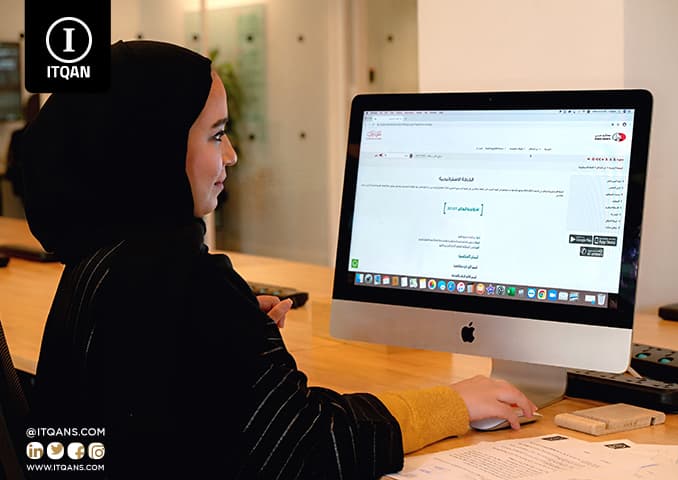Learn how to establish a company in Dubai in terms of advantages and costs, because Dubai is considered one of the most prominent global destinations for establishing companies, as it enjoys unparalleled economic and commercial advantages. Thanks to its strategic location linking the markets of Asia, Europe and Africa, Dubai has become a vital economic center that attracts entrepreneurs and investors from all over the world. The business environment in Dubai is characterized by advanced legal and administrative facilities, in addition to an advanced infrastructure that supports the growth of emerging, medium and large companies alike. In addition, the costs of establishing a company in Dubai are competitive compared to other major cities, making it an ideal destination for achieving business success. In this article, we will go over the main advantages of setting up a company in Dubai , as well as the costs associated with this procedure, to provide a comprehensive picture that will help you make an informed decision.

جدول المحتوى
ToggleAdvantages of establishing a company in Dubai
Establishing a company in Dubai provides many advantages that make it a favorite destination for investors and businessmen from all over the world. Below are the most prominent of these features:
- Strategic location : Dubai is located in the heart of the region linking Asia, Europe and Africa, making it an important logistics center and a market available to a large number of consumers.
- Tax exemptions : Dubai offers many tax incentives, including exemption from personal income tax and corporate taxes in many free zones, which contributes to reducing financial burdens on companies.
- Advanced work environment : Dubai is characterized by an advanced infrastructure that includes the latest technologies and logistics services, in addition to flexible laws and regulations that support business growth and facilities.
- Easy access to financing : Dubai provides excellent opportunities to access various sources of financing through international and local banks, in addition to investment funds and individual investors.
- Diversity of economic sectors : Investment opportunities in Dubai are diverse across many sectors such as trade, tourism, real estate, technology, and financial services, allowing for business expansion and diversification of sources of income.
- Ease of establishment and operation : The UAE government facilitates the process of establishing companies thanks to simplified and quick procedures, including the possibility of establishing foreign companies with full ownership without the need for a local partner in many free zones.
- A solid legal system : The legal system in Dubai is based on the principles of transparency and justice, which provides legal protection to investors and guarantees their commercial rights.
- Quality of life : Dubai provides a world-class living environment that combines modernity and heritage, making it an attractive place to live and work alike.
These advantages make Dubai an ideal center for establishing companies, which contributes to enhancing long-term growth and commercial success.
Cost factors for establishing a company in Dubai
The costs of establishing a company in Dubai are affected by several main factors, which play a decisive role in determining the total expenses. Here are the most important factors:
- Company type and location : Company formation varies in cost depending on the type of company you wish to establish, whether it is a limited liability company, a branch of a foreign company, or a company in a free zone. The geographical location of the company within Dubai (within the city or in a free zone) greatly affects costs, as costs are usually lower in free zones.
- License fees : These fees include obtaining a commercial license, which varies according to the commercial activity and the regulating body (city or free zone). Licensing costs vary from one region to another, and also depend on the type and size of the business.
- Office costs and facilities : Obtaining an office space is a prerequisite for establishing a company in Dubai. Office rental costs vary widely based on location and space required. In addition, costs include operational expenses such as electricity, water and internet.
- Required capital : In some cases, establishing a company in Dubai requires providing a certain capital as a condition for obtaining a license. The amount of capital required varies depending on the type of company and region.
- Government fees and legal procedures : Costs include fees for registration and authentication of official documents and certificates, in addition to the costs of dealing with government agencies and lawyers if necessary.
- Consulting costs : Company establishment costs can include consulting fees that may be necessary to obtain legal or business advice from specialists, especially if the company requires special arrangements or if the investor is new to the local market.
- Insurance costs and guarantees : The costs of commercial risk insurance, employee health insurance, and bank guarantees may be added, especially in the case of companies that operate in certain sectors or need financial guarantees.
- Number of employees and their salaries : The number of employees to be hired, their salaries, and related visa costs affect the overall budget for establishing the company. Understanding these factors helps in proper financial planning for establishing a company in Dubai and ensuring its long-term sustainability.
Conditions for establishing a company in Dubai
Establishing a company in Dubai requires adherence to a set of conditions and procedures that ensure compliance with local laws and regulations. Here are the basic conditions for establishing a company in Dubai:
- Determine the type of company : You must first determine the type of legal entity of the company, whether it is a limited liability company (LLC), a sole proprietorship, a branch of a foreign company, or a company in a free zone. Each of these types of entities has special requirements in terms of legal structure and capital.
- Choosing a Business : Investors have to choose the business in which the company will operate. The chosen activity must comply with the classifications approved by the Department of Economic Development (DED) or the free zone regulating body.
- Determine the location : The company’s location must be determined, whether within the city or in one of the free zones. Conditions vary by location, as free zones offer special benefits such as full foreign ownership, while companies within a city may require a local partner.
- Naming the company : A trade name for the company must be chosen that complies with local regulations, and must not include any prohibited words or that violate traditions and customs. The name must be unique and not registered to another company.
- Obtaining approvals and licenses : Establishing a company requires obtaining the necessary licenses from the competent authorities. The specific business activity may require additional approvals from competent government agencies, such as the Ministry of Health, or the Telecommunications Regulatory Authority, depending on the type of activity.
- Deposit of capital : In some cases, the company’s capital is required to be deposited in a local bank account, and this requirement varies depending on the type of company and location. Free zones may not require a certain capital deposit.
- Preparing legal documents : Basic legal documents such as the company’s articles of incorporation and articles of association must be prepared and documented, which explain the company’s structure and the scope of its business. These documents need to be authenticated by the relevant authorities.
- Renting an Office : A company must secure an official business address by renting an office. In free zones, these requirements can be more flexible, as some zones offer options for shared or virtual offices.
- Obtaining residence visas : Foreign investors must obtain a residence visa for investors or partners, as well as visas for employees who will be employed in the company.
- Compliance with local laws : Companies must comply with local laws related to taxes, employment, insurance, and the environment, in addition to maintaining an accurate and up-to-date record of all business transactions.
Adherence to these conditions ensures that setting up a company in Dubai is legal and smooth, allowing investors to focus on achieving their business goals in a stable and prosperous business environment.

Steps to establish a company in Dubai
Establishing a company in Dubai requires following a set of steps that ensure compliance with local laws and administrative procedures. Here are the basic steps to establish a company in Dubai:
- Choosing a Business : The process begins by determining the type of business in which the company will operate. Investors must choose an activity that matches the classifications approved by the Department of Economic Development (DED) or the free zone in question.
- Determine the type of legal entity : Depending on the business activity and location, the legal entity of the company must be determined. Options include a limited liability company (LLC), a sole proprietorship, a branch of a foreign company, or a company in a free zone. Each type of entity has different requirements and procedures.
- Choosing a company name : You must choose a trade name for the company that adheres to local laws. The trade name must be unique and not registered to another company, and must not contain prohibited or offensive words.
- Submitting an initial approval request : After choosing the business activity and company name, an application must be submitted to obtain initial approval from the Department of Economic Development (DED) or the regulating authority in the free zone. This approval confirms that the company can proceed with the incorporation process.
- Preparing legal documents : The necessary legal documents must be prepared, such as the company’s articles of incorporation and articles of association. These documents explain the company’s structure, the rights and responsibilities of partners, and the scope of its business. These documents must be authenticated and certified by the relevant authorities.
- Renting an Office : The company must secure an official business address in Dubai. In free zones, companies can choose between renting a traditional office or using shared or virtual office options.
- Obtaining additional approvals : Depending on the type of business activity, it may be necessary to obtain additional approvals from competent government agencies such as the Ministry of Health, or the Telecommunications Regulatory Authority.
- Pay the license fees : After completing all the previous steps, you must pay the commercial license fees and obtain the commercial license. These fees vary based on the type of activity and location.
- Opening a bank account : The company must open a bank account in one of the local banks in Dubai to manage financial affairs. This may require submitting additional documents such as a business license and articles of incorporation.
- Obtaining residence visas : If the investors or employees are foreigners, residence visas must be obtained for them. This requires applications for investor and employee visas.
- Adherence to administrative procedures : After obtaining a commercial license, the company must adhere to the required administrative procedures such as tax registration (if required), employee insurance, and maintaining financial records.
By following these steps, setting up a company in Dubai can be done legally and efficiently, paving the way for business success in one of the fastest growing markets in the world.
Establishing a company in Dubai is a strategic step for any investor looking to benefit from the dynamic and diverse business environment in one of the most prominent global trade centers. With advantages such as strategic location, tax incentives, and advanced infrastructure, Dubai offers tremendous opportunities for success and growth. With the government’s commitment to facilitating and simplifying procedures, establishing companies in Dubai has become easier and faster. Whether you are looking for a new market to expand your business or want to start a new project in a supportive environment, Dubai represents an ideal destination that will fulfill your long-term business ambitions.
Frequently asked questions about establishing a company in Dubai, advantages and costs
Can foreigners establish a company with full ownership in Dubai?
Yes, foreigners can establish a company with full ownership in Dubai within the free zones. In some cases within the city, foreigners can own the entire company without the need for a local partner, especially after recent legal amendments.
What types of companies can be established in Dubai?
Multiple types of companies can be established in Dubai, such as limited liability companies (LLC), sole proprietorships, branches of foreign companies, and free companies in free zones.
What are the costs associated with setting up a company in Dubai?
Costs vary based on several factors such as the type of company, location (within the city or in free zones), licensing fees, office rental cost, and costs of legal and administrative procedures. In addition, there are costs related to insurances and employee salaries.
Do establishment costs differ between free zones and within the city?
Yes, costs vary greatly. Establishing a company in a free zone is often less expensive and more flexible, as free zones offer benefits such as tax exemption and full foreign ownership. Within the city, costs may be higher with some additional requirements.


















